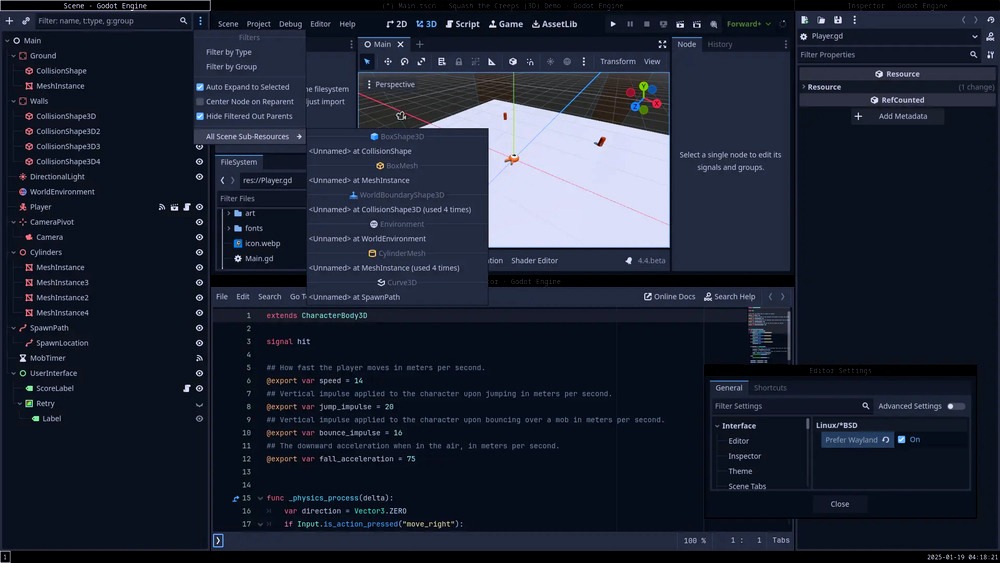Among the critical changes are modifications to tilemap physics, removal of certain internal nodes, asynchronous navigation support for both 2D and 3D, and updates to the physics handling in the form of adjustments to Jolt Physics settings. User experience improvements include new features in animation tools, audio resampling enhancements by Berama, and significant strides by the .NET team in integrating .NET with web builds. The core engine is being scrutinized for better script backtracing support, and user-friendly features like foldable containers and advanced import settings have been introduced.
Additionally, GDScript 4.5 has seen usability enhancements such as improved code completion and the introduction of an 'abstract' keyword. The Godot Foundation has also focused on accessibility by incorporating AccessKit to support screen readers, while offering new features for managing multiple remote nodes and project-specific editor settings.
With the upcoming release, Godot 4.5 will support SIMD for performance boosts, discontinue support for older Windows versions, and provide stencil support across rendering backends. A shader baker has been introduced to ensure shaders are pre-compiled during export. The XR team is working on additional OpenXR extensions, with a release planned for April.
As the beta phase progresses, contributors are encouraged to focus on bug fixes, participating in organized bug-hunting sprints led by the new head of the Bugsquad. The community is invited to support the project financially to facilitate ongoing development and maintenance of the engine.
Moving forward, it is essential for users to engage with the latest beta version and provide feedback to help refine Godot 4.5 before its final release. With its commitment to continuous improvement and community involvement, Godot aims to provide an even more robust and versatile platform for game developers
Godot 4.5 Beta 1 released
Godot 4.5 beta 1 has been released and introduces several significant features, including animation, audio/video capabilities, C# support, comprehensive documentation, an enhanced editor, GDScript improvements, GUI advancements, import functionalities, input options, internationalization support, navigation enhancements, physics updates, platform compatibility, rendering and shader improvements, and XR integration. Some important changes include handling tilemap physics in parts, getting rid of internal nodes, adding asynchronous navigation for both 2D and 3D, removing the gradle_build/compress_native_libraries export option, taking out the "Areas Detect Static Bodies" setting from Jolt Physics, and removing set_scope from JSONRPC. The improvements for user experience include moving selection boxes, scaling options in the Bezier editor, automatic tangents, animation filtering, and adding a delta argument in SkeletonModifier3D. Furthermore, Berama has enhanced the multi-channel audio resampler and incorporated metadata tags into WAV and OGG audio streams.
The .NET team has achieved notable advancements in integrating .NET into web builds for Godot and in the transition to GDExtension for C#. The objective is to ensure that interop calls are universally applicable, enabling any programming language to leverage their benefits. The engine's core is currently being examined, with the addition of script backtracing support for both GDScript and C#. Furthermore, enhancements have been implemented regarding resource duplication, scene transitions, and thread safety. The team appreciates the valuable contributions made by Lukas Tenbrink.


